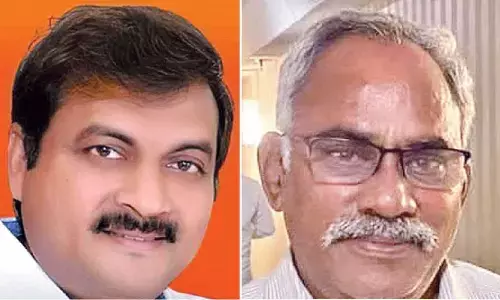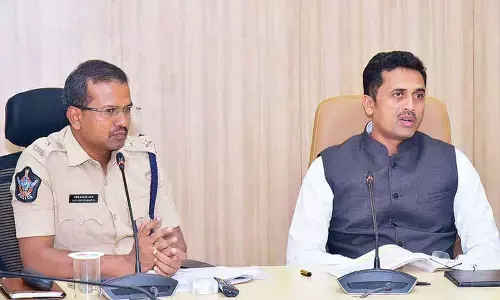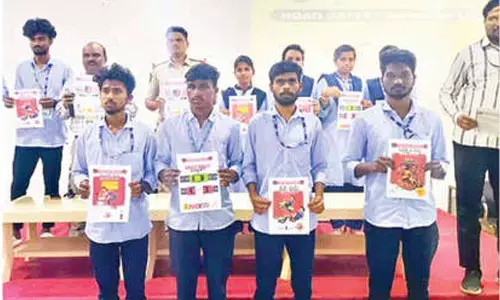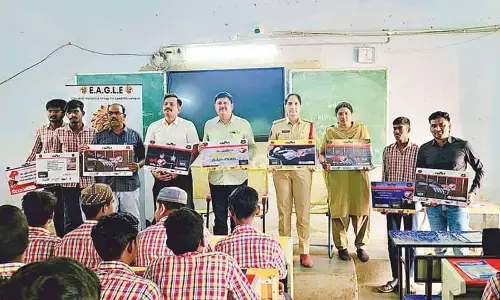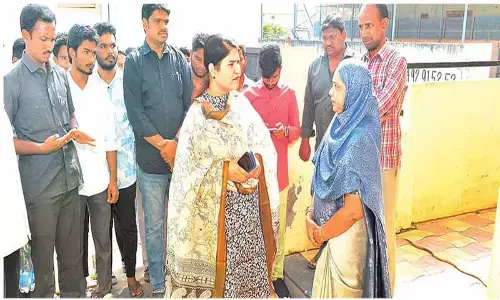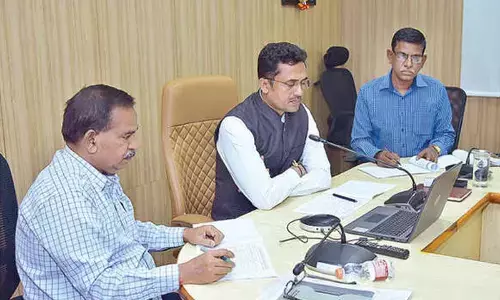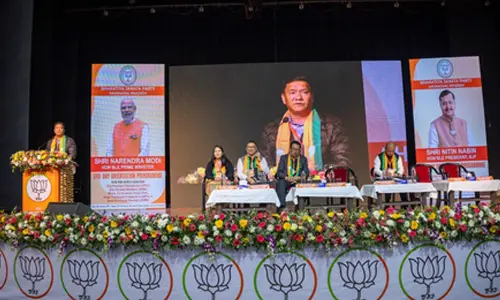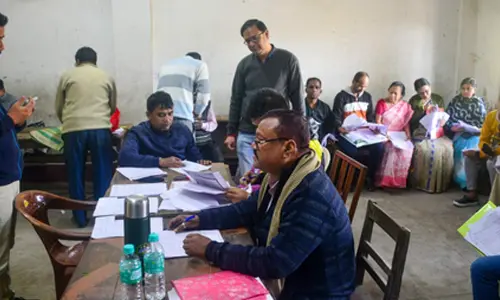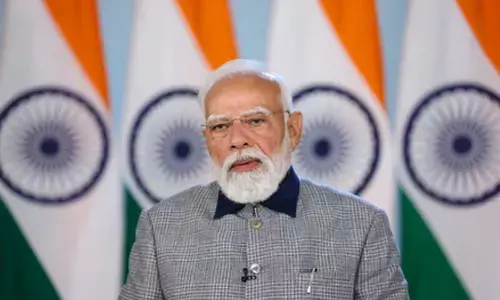Justice Choudary said it 34 yrs ago
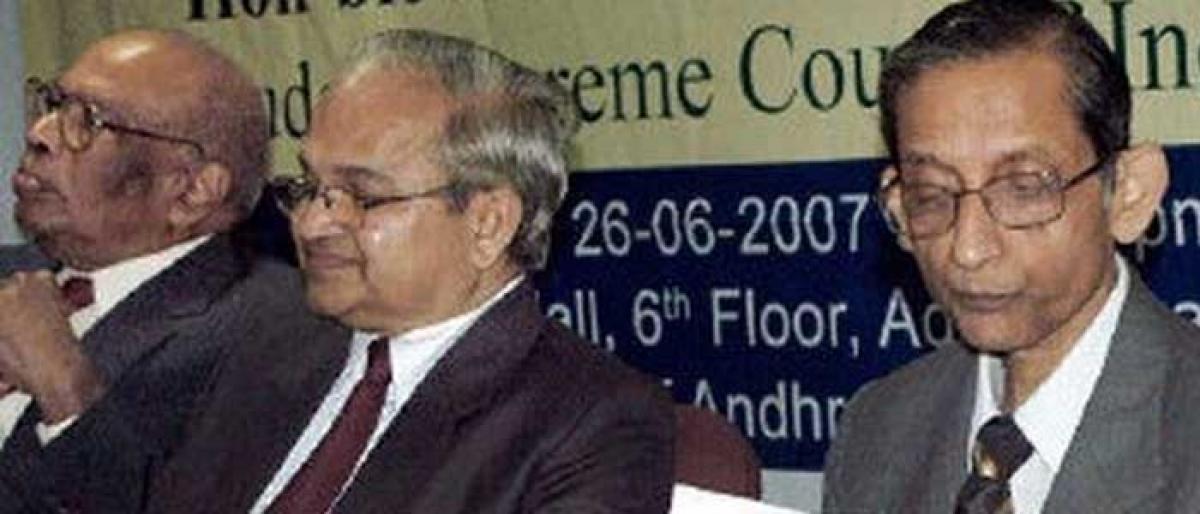
Privacy is fundamental right. Justice P A Choudary of AP High Court said it 34 years ago. Nine judges of Supreme Court said it on August 24, 2017. Film star Sareetha while studying in a high school, aged about sixteen-years and staying with her parents at Madras, was alleged to have been married to Venkata Subbaiah.
Privacy is fundamental right. Justice P A Choudary of AP High Court said it 34 years ago. Nine judges of Supreme Court said it on August 24, 2017. Film star Sareetha while studying in a high school, aged about sixteen-years and staying with her parents at Madras, was alleged to have been married to Venkata Subbaiah.
Soon they were separated for more than five years. After she attained stardom, ‘husband’ Venkata Subbaiah filed for restitution of conjugal rights with Sareetha under Section 9 of Hindu Marriage Act. Decree was issued in his favour. Justice Choudary agreed with the challenge of Sareetha that Section 9 was constitutionally invalid as that permits state to interfere with the choice of intercourse within marriage.
Section 9 empowers the court to force a spouse to join the other if convinced one had ‘without reasonable cause, withdrawn from the society’ of their spouse. The court can decree that the defaulting spouse go back to the company of their partner. This decree could be enforced by attaching the defaulter’s property.
This amounts to state’s interference in woman’s private decision whether or not to engage in sexual intercourse, and whether or not to carry a child. It violated the rights to equality and privacy under the Constitution, said Justice Choudary.
Justice Choudary penned a scholarly essay on privacy in his path-breaking judgment, in 1983, emphasising the all-important choice of sexual intercourse of a person at the core of his/her liberty within the institution of marriage and family. In this case, he made a profound proposition: Sexual expression is so integral to one's personality that it is impossible to conceive of sexuality on any basis except on the basis of consensual participation of the opposite sexes. Delhi High Court was considering the question of marital rape.
Choudary says: Conjugal rights connote two ideas. (A) "the right, which husband and wife have to each other's society and (b) "marital intercourse". A decree for restitution of conjugal rights not only grants conjugal society but also enforces it. This decree is fraught with such serious consequences as that enables the decree-holder to seek attachment and sale of the property of the recalcitrant spouse. This is well illustrated by Annasaheb v. Tara Bai.
In that case, the Division Bench of the Madhya Pradesh High Court decreed the husband's suit for restitution of conjugal rights observing": but if the husband is not guilty of misconduct, a petition cannot be dismissed merely because the wife does not like her husband or does not want to live with him............." What could have happened to Tarabai thereafter may well be left to the reader's imagination, said Justice Choudary.
Some points from his judgment are as follows: Bertrand Russell declared that: "I have sought love, first because it brings ecstasy-ecstasy so great that I would often have sacrificed all the rest of life for a few hours of this Joy.” Forced sex, like all forced things is a denial of all joy yet in conceivable cases sex and statutorily be denied and even forbidden by law between specified groups of persons. ….The restitution of conjugal rights by force of arms can be more and can be no less than what late Sri Sri, described as "Rakshasa Rathi". …In Russel v. Russel, Lord Herschel long-ago noted the barbarity of this judicial remedy. He observed, I think the law of restitution of conjugal rights as administered in the courts did sometimes lead to results which I can only call barbarous."
He further said: It is now well established by the decisions of the Supreme Court that the word 'life' occurring in the above Article 21 has spiritual significance as the word life occurring in the famous 5th and 14th Amendments to the American Constitution does.
In those constitutional provisions of the American Constitution, the life is interpreted by Mr. Justice Field in this dissenting judgment in Munn v. Illinois, to mean and signify "more than a person's right to lead animal or vegetative existence. Field J., said in the above Munn's case "by the term life as here used something more is meant than mere animal existence".
The contrast drawn by field J., emphasising the difference between existence of a free willing human and that of an unfree animal was accepted by our Supreme Court first in Kharak Singh v. State of UP and next in Govind v. State of MP. transforming Article 21 of our Constitution into a charter for civilisation. In Kharak Singh v. State of UP, Rajagopala Ayyangar J., for the majority, and Subba Rao, J., for the concurring minority, accepted the above meaning and significance given to the word 'life' by observing that the expression ‘life' used in that Article cannot be confined only to the taking away of life, that is causing death. Subba Rao J., in the same case gave greater importance to the words "personal liberty," occurring in Article 21 of the Constitution.
But both held that Article 21 of our Constitution be the source for the protection of our personal liberty and life in the elevated sense. Subba Rao J., perceptively observed that right to privacy forms a part of the guaranteed right of personal liberty in the Article 21 of the Constitution. Justice Choudary saw the possible progress of science and technology four decades in advance in 1983 and its adverse impact on private life of a person.
Mathew J in Govind referred to minority order of Subba Rao J, and also referred several American cases, such as Griswold v. Connecticut, and Jane Roe v. Henry Wade, ruled that Article 21 of our Constitution embraces the right to privacy and human dignity. The centerpiece of the judgment in Govind's case is to hold that right to privacy is part of art 21 of our Constitution and to stress its constitutional importance and to call for its protection.
The learned Judge then examined the content of the right to privacy and observed that "any right to privacy must encompass and protect the personal intimacies of the home, the family, marriage motherhood, procreation and child rearing." He stressed the primordial importance of the right to privacy for human happiness and directed the courts not to reject the privacy-dignity claims brought before them except where the countervailing state interests are shown to have overweighing importance.
He observed that "there can be no doubt that the makers of our Constitution wanted to ensure conditions favorable to the pursuit of happiness. They certainly realized as Brandies J., said in his dissent in Olmstead v. United states of America , the significance of man's spiritual nature of his feelings and of his intellect and that only a part of the pain, pleasure satisfaction of life can be found in material things and therefore they must be deemed to have conferred upon the individual as against the Government a sphere where he should be left alone."
Justice Choudary quoted Gary L Bostwick, who suggests that "privacy is divisible into three components (a) repose (b) sanctuary and (c) intimate decisions of these three components he holds, that the last one is an eminently more dynamic privacy concept as compared to repose and sanctuary.
Choudary discussed Subbarao, J, Govind, American cases, Bostwick, Griswold case to prove his point on privacy. It was rejected in a few months by Delhi High Court, and was further confirmed by Supreme Court. But all those points were rediscovered by Supreme Court’s nine-judge bench order in KS Puttaswamy declaring privacy as fundamental right under Part III of the Constitution.








